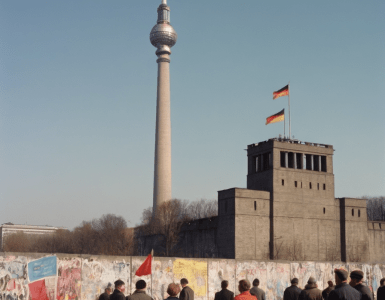History, as they say, is written by the victors. But what about the losers? The bystanders? The completely unexpected players who stumbled onto the stage and changed the script entirely? Textbooks tend to streamline narratives, focusing on the big names and the major events, often leaving out the fascinating quirks and curious coincidences that make history so endlessly captivating.
Let’s take a detour from the well-trodden paths and explore some of these overlooked aspects of historical days and events. Forget the polished monuments and the grand pronouncements; we’re diving into the messy, unpredictable reality of the past. History's Backstage Pass: Unexpected Turns and Forgotten Footnotes
The Day the Vikings Almost Conquered England (and Why They Didn’t)
1066. The year of the Norman Conquest. Harold Godwinson, King of England, faces William the Conqueror at the Battle of Hastings. History books focus on the Norman victory, William’s cunning tactics, and the subsequent upheaval that reshaped England. But what if I told you that Harold faced another, arguably bigger, threat just *weeks* before Hastings?
Enter Harald Hardrada, King of Norway. He launched a massive invasion of England, landing in Yorkshire with a formidable force. He actually *won* a major battle at Stamford Bridge, decisively defeating the English army. Hardrada, a legendary warrior, seemed poised to conquer England. Imagine a Norse-ruled England! A drastically different historical trajectory! But, and here’s the twist, Harold, after his hard-fought victory at Stamford Bridge, had to march his exhausted army almost immediately south to confront William. The incredible speed and distance required to reach Hastings left Harold’s men utterly depleted. This forced march, a consequence of Hardrada’s near-success, is often glossed over, yet it played a crucial role in shaping the outcome of Hastings and, consequently, the course of English history. Hardrada’s defeat proved a pivotal event, but one that’s often overshadowed by William’s ultimate triumph. Without Hardrada’s earlier onslaught, the outcome at Hastings might have been vastly different.
The Accidental Invention that Changed the World (Twice)
The printing press. Gutenberg’s masterpiece. A technological revolution that fueled the Renaissance and ushered in the modern era. While Gutenberg gets the credit, the story is far more nuanced. The printing press wasn’t a sudden, isolated invention. It was the culmination of centuries of experimentation and refinement, drawing on technologies from East Asia, including movable type, which had been around for centuries. Gutenberg’s genius wasn’t in inventing something entirely new, but in perfecting and combining existing techniques to create a practical, scalable system. The history of the printing press underscores the often-overlooked collaborative and incremental nature of technological advancement; it wasn’t a single eureka moment but a slow burn of innovation, spanning continents and generations. In addition, it’s worth noting the press also had a profound impact on the religious reforms of the era, and the emergence of printed materials played a pivotal role in spreading new ideas and dissenting opinions causing major political and societal shifts.
The Unsung Heroes of the American Revolution
The American Revolution is typically portrayed as a clash between the American colonists and the British Empire, focusing on figures like Washington, Franklin, and Jefferson. But the story is far more complex. The revolution wouldn’t have succeeded without the crucial support of numerous other players. For example, the contributions of enslaved people and free Black Americans are often downplayed or ignored entirely. They served in the Continental Army, provided essential supplies, and even conducted espionage efforts. Their contributions, while vital, are frequently sidelined in traditional accounts, reflecting the pervasive biases of the historical record. Similarly, Native American tribes played complex and often contradictory roles, forming alliances with both sides based on their own strategic interests. Their agency and motivations are frequently reduced to simple allegiances, ignoring their diverse and deeply nuanced experiences during the tumultuous period, showing a more inclusive picture of the history of the revolution would give all the people and groups involved their due in the narrative.
The Curious Case of the Disappearing Emperor
The fall of the Roman Empire is a complex tapestry of factors. Overextension, economic woes, internal strife – the list goes on. But one aspect that’s often overlooked is the sheer number of “emperors” during the later stages of the Western Roman Empire. These rulers often rose and fell with astonishing speed, many with extremely short reigns, their names lost to the mists of time. Some vanished without a trace, leaving historians puzzling over their ends. They were a product of the instability and violence that marked the empire’s decline, their stories frequently lost to obscurity because they lacked the long reign to leave a substantial mark on the historical record. These brief, turbulent reigns highlight the fragility and volatility of the Empire in its last gasp.
The Unexpected Legacy of a Forgotten Treaty
History is filled with treaties, agreements that shape borders, alliances, and the course of nations. Most remain relatively obscure, but some hold surprising long-term consequences. Pick a treaty from any significant historical era – there’s a good chance its aftereffects are far more interesting than the initial signing ceremony. Think about the ripple effects, the unintended consequences, and how a seemingly minor clause might have had unforeseen and lasting impact on the politics of the region or the world. The intricacies and long-term ramifications of such treaties often remain uncharted territory for many, making it an interesting field of study for people interested in historical trivia and the subtle ways in which past events have shaped our world.
These are just a few examples of the “side streets” of history – the overlooked details, the unexpected twists, and the unlikely heroes who shaped the world we know. By exploring these lesser-known aspects, we gain a richer, more nuanced understanding of the past and its enduring legacy.

























Add comment